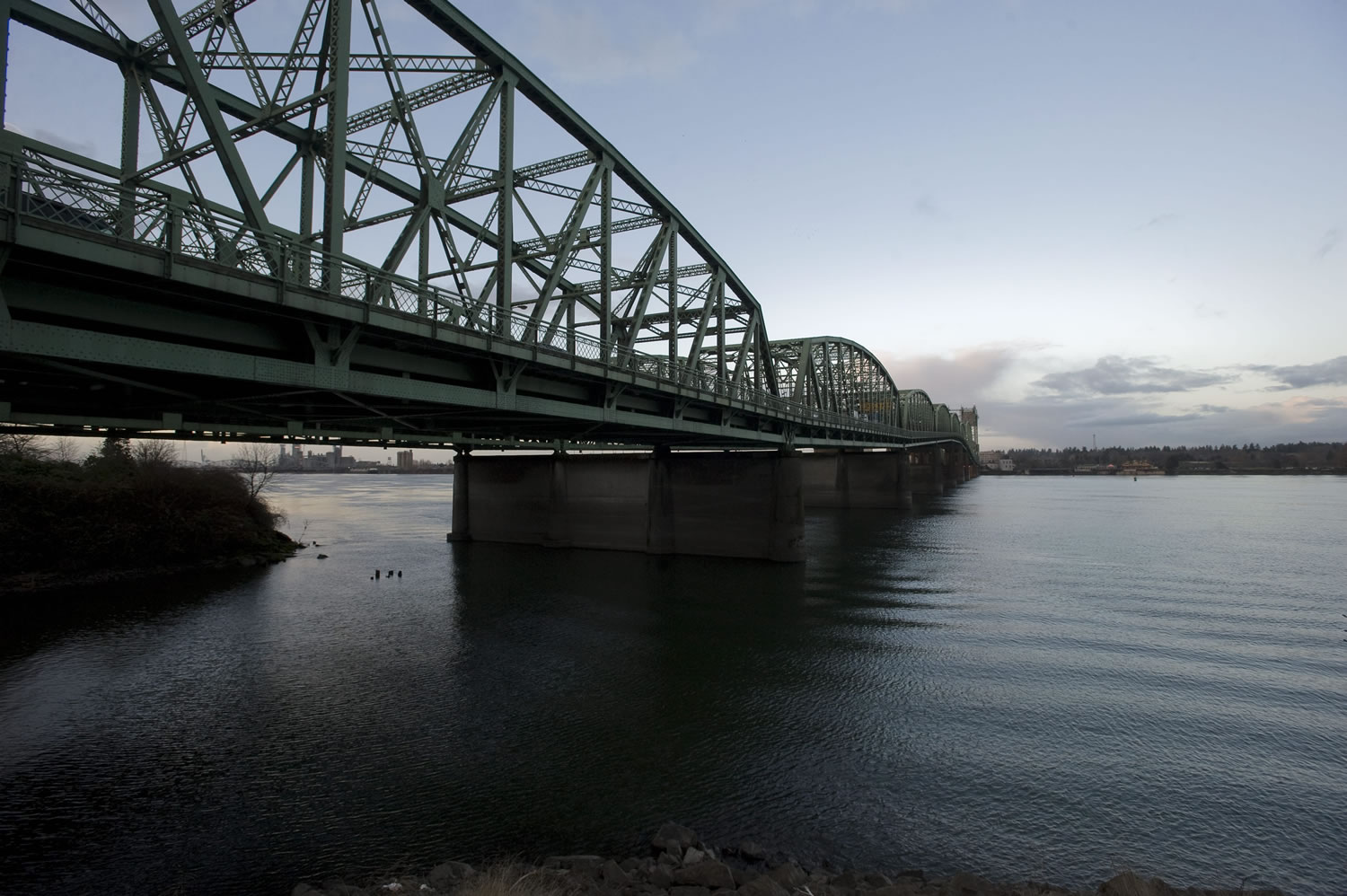The Columbia River Crossing is primed to pay more than $86 million in taxpayer money to compensate three companies that could be negatively impacted by a new Interstate 5 Bridge, according to documents released Friday.
The terms are detailed in a set of mitigation agreements between the CRC and three major manufacturing outfits that operate upstream of the proposed span: Thompson Metal Fab, Greenberry Industrial and Oregon Iron Works. Under the deals, Thompson would receive $49.8 million; Greenberry would receive $24.8 million; and Oregon Iron Works would get $11.8 million.
The money would be paid out only if the embattled project, once declared dead, actually materializes.
Greenberry Industrial and Oregon Iron Works signed mitigation deals with the CRC in May. Thompson Metal Fab inked its agreement this week. All three agreements were released Friday in response to public records requests by The Columbian and others.
The three companies all operate facilities at Vancouver’s Columbia Business Center, and say their largest products wouldn’t fit under a span with a planned height of 116 feet. The existing drawbridge allows for 178 feet of clearance when lifted.
The companies’ total compensation of $86.4 million falls within the range CRC officials estimated this year. It’s also less than project leaders had pegged the cost of raising the planned bridge height to 120 feet or higher, or adding a drawbridge to the design.
A Thompson representative said Thursday his company’s deal “probably will” mean relocation, but it’s unclear where. The other two businesses have indicated they’ll likely stay put. The agreements spell out few specific conditions on what the companies must do with their compensation, only set a dollar amount.
The CRC pursued mitigation deals as it attempts to secure a bridge permit from the U.S. Coast Guard. Having agreements in place with all three manufacturers likely helps the CRC’s chances. The project also separately announced water quality certifications from both the Washington State Department of Ecology and the Oregon Department of Environmental Quality on Friday.
But the project came up short on negotiations centered around a fourth affected river user. Talks between the CRC and Vancouver-based contractor JT Marine broke off recently with no resolution, said CRC director Kris Strickler.
The Coast Guard is expected to make its decision on the bridge permit by Sept. 30.
“We have safeguards in place to ensure mitigation funds are provided only after the U.S. Coast Guard permit is received, necessary construction permits are secured, and (the Oregon Department of Transportation) awards a construction contract,” ODOT Director Matthew Garrett said in a released statement.
In other words, the three mitigation agreements are valid only if the CRC is actually built. Two months after the Washington Legislature adjourned without committing any money to the project — and the project offices began shutting down — that’s a big if. Washington has almost entirely withdrawn itself from the CRC, and officials have said the state is no longer authorized to spend anything on the project.
The project’s remaining staff appear to be attempting to work around legislative approval in Washington, at least for now.
The first two mitigation deals, finalized before the Washington Legislature adjourned, were signed by the leaders of both states’ transportation departments. The third, signed this month, is framed only as an agreement between Thompson Metal Fab and the Oregon Department of Transportation — not Washington. Thompson’s deal also removes the word “bi-state” from the project description, included in the first two deals.
It’s not even clear where the money to pay out the agreements would come from. As things stand now, none of the deals could be paid with funds from Washington, Strickler said. That essentially leaves Oregon taxpayers on the hook. But officials are still evaluating how they’d hold up their end of the bargain, Strickler said.
“We’re still looking at options to pay for the mitigation,” he said.
Work on the project is now being funded by Oregon, where some leaders have picked up an effort to revive the CRC with Oregon at the helm. Oregon Gov. John Kitzhaber told lawmakers there this week that they’d have answers next month as whether a $2.75 billion, pared-down CRC, without any freeway work north of state Highway 14 in Washington, would be feasible. That approach would still replace the I-5 Bridge and extend light rail into Vancouver.
Oregon authorized spending $450 million for the CRC earlier this year. But without money from Washington, that commitment expires on Sept. 30 unless lawmakers in Salem reconvene and rewrite it. That’s just one of many questions still surrounding the project as backers scramble to find answers.
Eric Florip: 360-735-4541; http://twitter.com/col_enviro; eric.florip@columbian.com.




